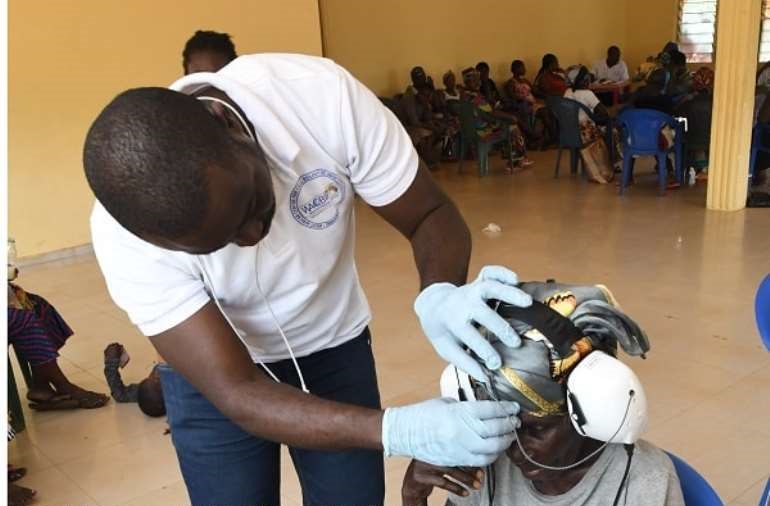WACCBIP (Ghana) Diagnoses Genetics of Hearing Impairment in Ghana
Written By Millicent Afriyie Kyei
The West Africa Centre for Cell Biology of Infectious Pathogens (WACCBIP) hosted by the University of Ghana since its inception in 2014, has been at the forefront of addressing health-related challenges in the region through applied scientific and biomedical research in infectious and non-communicable diseases as well as human genetic research. There have been numerous breakthroughs demonstrating development impact, through the cutting-edge research conducted by the centre. One of the major research innovations is the diagnosis of the genetics of hearing impairment in Ghana.
Adamorobe, a community in the Akuapim South District in the Eastern region of Ghana has a characteristically high incidence of hereditary hearing impairment (HI). It is therefore not surprising that marriages between deaf persons were barred in the town in 1975, to curb the rate of deaf offspring. To further understand the cause(s) of the hearing impairment, WACCBIP, with its modern next-generation sequencing approaches investigated this challenge by recruiting thirty (30) individuals from eight (8) multiplex families (20 affected and 10 unaffected) from the community, and found the families had GJB2 mutations (GJB2 is an important gene for hearing. Specific mutations in this gene causes hearing impairment).
As part of a nationwide study investigating the genetic causes of hearing impairment in Ghana, the centre collected samples from all 11 schools for the deaf across the country. The study identified a founder mutation (GJB2-R143W) that accounts for over a quarter of inheritable hearing impairment cases in Ghana. The findings also indicated a 1.4 per cent carrier frequency rate among 145 healthy Ghanaians who were screened randomly, suggesting that among every 145 Ghanaians, two are likely to carry the defective gene that can be passed on to their children. Therefore, the number of hearing-impaired patients in Ghana could silently increase if this gene was not checked.
Cumulatively, the GJB2 founder variant accounted for 42% (37/88) of families, with the majority of GJB2 positive cases observed in participants from the Eastern Region, where Adamorobe is located. Evolutionary analysis also revealed that Ghanaian families segregating the variant are descendants of a common indigenous ancestor who lived approximately 385 generations (approximately 9625 years) ago.
As part of its interventions to reduce the burden of the condition, WACCBIP started a public and policy engagement to create awareness for the genetics of hearing impairment. A diagnostic test with high sensitivity and specificity to screen newborn babies for common hearing impairment mutations within the Ghanaian population was designed. In addition, the centre is generating and analysing exome data to identify novel hearing impairment gene variants in the country. Lastly, considering the current findings on the contribution of GJB2 in Ghana, it is imperative to reflect on the previously reported policy document for adoption and expansion of the existing premarital counselling to include GJB2 founder variant carrier testing like how the sickle cell disease counselling is handled.
The diagnosis of the genetics of hearing impairment in Ghana by WACCBIP is an example of how this centre of excellence is addressing a national development challenge because it has been strengthened through the ACE Impact Project to conduct relevant, high-quality and impactful research.
